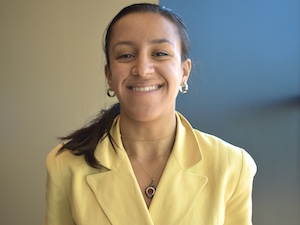2022 Orientation: Arts
Liesel 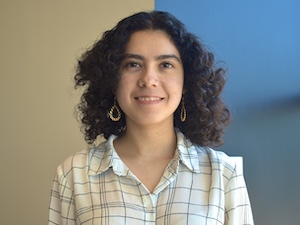 Arauz Vallecillo | Art with a Heart
Arauz Vallecillo | Art with a Heart
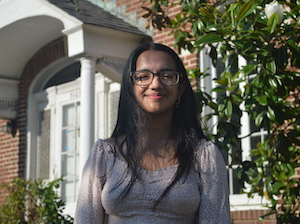 Shantika Bhat | Jubilee Arts
Shantika Bhat | Jubilee Arts
Caroline Colvin | Chesapeake Shakespeare Co
Monday morning, I arrived at FastForward U just before 8:30am, eager to begin the day’s festivities. I said hello to my mentees as they found their seats, and by 9am we were off! Presentation highlights of the day included Lane Victorson on the History of Baltimore, Keiona Gorham and Moira Fratantuno on Youth Voices in Baltimore, and Awoenam Mauna-Woanya on mapping one’s future through “beats.” My peer mentor group had a productive reflection session on the power of artivism, and we began unpacking the Baltimore/Hopkins relationship. Everything was running smoothly… until it wasn’t.
After nearly three years of avoiding the virus, my partner was exposed to COVID-19 at the airport while flying home from his grandfather’s funeral. My orientation was put to a sharp halt on Tuesday when I became symptomatic and tested positive.
While I am grateful neither of us experienced severe COVID, this past week was hard on me. Obviously, some of this was physical (respiratory infections aren’t fun :/), but a lot was mental. With no setup to attend orientation virtually, I felt isolated from the rest of the cohort. Other than the schedule of presentations, I had no way of knowing what day-to-day conversations were occurring within the group. I feared – and still do fear to some extent – that I was missing out on critical team building.
Although this past week was challenging, I am optimistic about the rest of my summer internship period, starting with this coming week! On Monday, I start my summer work with Chesapeake Shakespeare Company (CSC). On Tuesday, I will travel to CSC’s downtown office where I will meet the team and attend a staff meeting. Finally, on Wednesday, I will attend my first BITES session of the summer (one of my favorite experiences from last year). Here’s to the summer ahead!
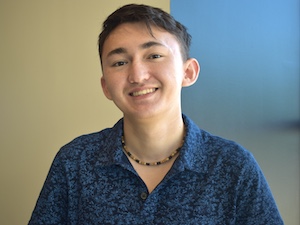 Christian Paulisich | DewMore Baltimore
Christian Paulisich | DewMore Baltimore
This week was exhausting but I had a great time getting to know other CIIPers and learning about CIIP from past interns. My favorite moment was when we stumbled along Clarissa and Irene at Kuhn Nine Thai in Mount Vernon during our scavenger hunt. It was great to see how CIIPers incorporated themselves and their CIIP experience into important work in the Baltimore community post-graduation. There’s so much more fun things to do in the city that I wasn’t aware of before. I hope to go on adventures throughout Baltimore with my fellow CIIPers this summer.
During orientation, I learned a lot from the workshops and lectures from the Peer Mentors and guest speakers. The talks taught me a lot about the history of Baltimore and where the many misconceptions about the city and its communities come from and how they are rooted in racism, classism, etc. It makes me sad to know that while Hopkins has done a lot of good for the world and Baltimore, it has also done a lot of irreparable harm that the university often turns a blind eye toward. Some of the talks were heavy and really pushed me to question which unconscious biases I too hold based on my identities and life experiences.
While it’s important to focus on our similarities as people, it’s crucial to acknowledge our differences so that we are more aware of how we exist in our communities. Despite my many minority identities and my good and bad experiences with them, I have to act in a way that is conscious of the community I will be working in and respectful of their experiences, opinions, and attitudes toward me based on my identities. The main goal I have in this is gaining the community’s trust by lending a ready ear to any experiences they are willing to share with me, by giving a hand and taking a step back when needed, and allowing them to get to know me and my identities so that we can both gain as much as possible from my time with CIIP.
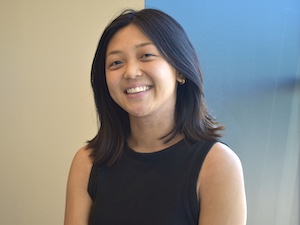 Jocelyn Shan | Baltimore Youth Arts
Jocelyn Shan | Baltimore Youth Arts
Orientation simultaneously felt like it crawled and flew by. For me, a main part of the adjustment was being awake and ready to go by 9AM for a day packed with get-to-know-you activities, seminars, and discussions. Looking back on the other side of it, I am so grateful for the time that we had to get to know each other and discuss these heavy topics before our work starts this summer. Baltimore is such a unique city. I feel like I have learned that through personal experiences my past 3 years here. However, delving deeper into the history of the racism and policies that shaped the city to be the way that it is was jarring and important to talk about. I’ve learned about the history of red-lining and medical racism in several classes, but I haven’t really thought about those things after stepping out of those courses. Having such a variety of speakers coming in to speak about unique topics that were somehow all tied back to the racist policies that formed this city stood out to me. Baltimore is such a singularity because of the specific history and traumas that its people experienced that still carry shockwaves into today. Something that stood out to me was the discussion about transportation. Someone noted that access to transportation is access to health. When I heard that, I had some push back. No way could such a broad statement be true. But the more I thought about it, the more the truth sank in. Without transportation, you can’t get to grocery stores, to recreation centers, to the hospital or clinic, to work. The lack of accessible transportation between West and East Baltimore is so stark compared to how easily you can travel up and down the White L. The idea of access came up for me this week. It’s not about people in East, West, North, South Baltimore being different or having different needs or anything. It’s a matter of access. Councilman James Torrence told us about his district, unique in that he represents parts of the White L and the Black Butterfly. His staff noticed that 311 calls were mainly coming from the more affluent areas and not the poorer areas. Knowing that there surely were 311 complaints in the latter area too, he sent his staff workers there to check and physically submit 311 requests. He said “the people are not being heard or seen so we need to see them in a different way”, hence him sending his staff out to check. The people in his district aren’t significantly different from each other, but their access and their knowledge of their access to services was a disparate factor. Hearing these tangible examples of how much access can impact people lit a fire in me and is a frame of mind that I will bring into my internship.

